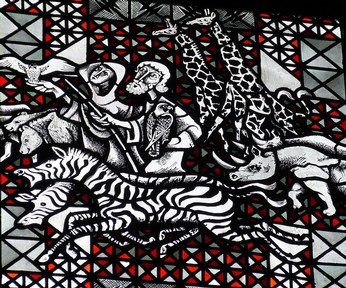Quiz Answer Key and Fun Facts
1. Let's start with what could be an easy one. On what country did God unleash a plague of locusts, as per Exodus 10:1?
2. The following statement making reference to Ten Plagues unleashed by God is from Psalm 78:45-46 in the NKJV: "He sent swarms of flies among them, which devoured them, and frogs, which destroyed them. He also gave their crops to the caterpillar, and their labor to the locust." Who is credited with writing Psalm 78? (And no, David is not the correct answer.)
3. What country did Israelite spies visit, saying the inhabitants made them feel like grasshoppers?
4. In Exodus 23:28, God is quoted as telling a man in the NKJV, "I will send hornets before you, which shall drive out the Hivite, the Canaanite, and the Hittite from before you." Who did God make the statement to?
5. The following statement by a prophet of God is from the NKJV: "And it shall come to pass in that day that the LORD will whistle for the fly that is in the farthest part of the rivers of Egypt, and for the bee that is in the land of Assyria." What prophet made the statement to King Ahaz?
6. "Go to the ant, you sluggard! Consider her ways and be wise," is advice for lazy people in an Old Testament book. In what book is the verse from?
7. What New Testament character ate locusts and wild honey? (Matthew 3:4)
8. In Matthew 23:24, Jesus accused a group of people of being, "blind guides, who strain out a gnat and swallow a camel!" Who did Jesus address His comments to?
9. The following statement is from Matthew 6:19-20 in the NKJV: "Do not lay up for yourselves treasures on earth, where moth and rust destroy and where thieves break in and steal; but lay up for yourselves treasures in heaven, where neither moth nor rust destroys and where thieves do not break in and steal." Who made the statement?
10. "Your riches are corrupted, and your garments are moth-eaten," is a statement made in an epistle in the New Testament. What is the name of the epistle?
Source: Author
Cowrofl
This quiz was reviewed by FunTrivia editor
LeoDaVinci before going online.
Any errors found in FunTrivia content are routinely corrected through our feedback system.
